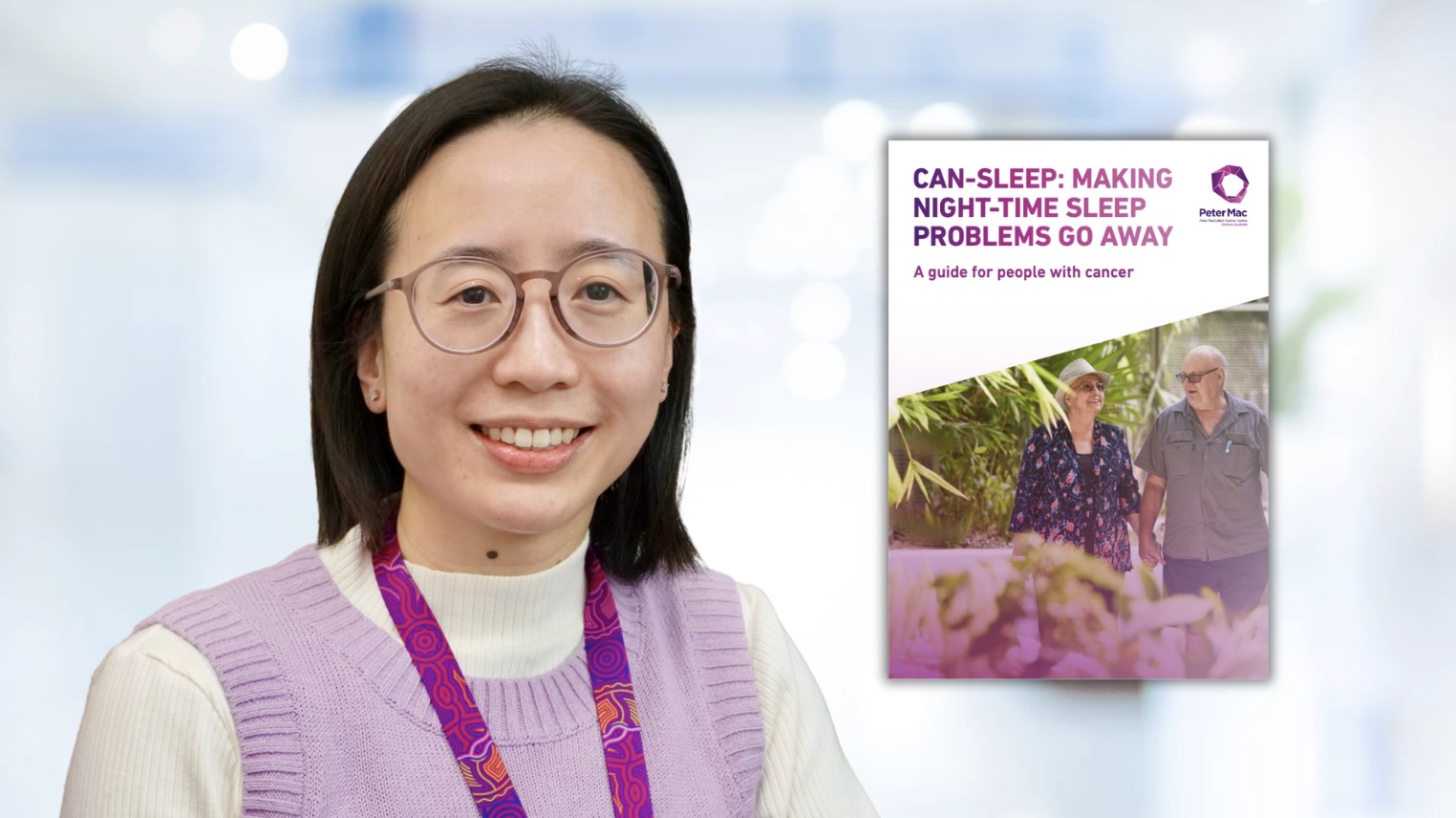Helping Cancer Patients Get a Better Night’s Sleep
08 August 2025

Struggling to sleep during or after cancer treatment is far from unusual — in fact, it’s one of the most common challenges patients report with six in every 10 affected.
The good news? Simple, evidence‑based techniques led by Peter Mac psychologists are helping many people overcome these problems.
This week is Sleep Health Week and we’re shining a light on the impact of poor sleep – and why it’s so important to get help if you’re having trouble nodding off or staying asleep.
Senior Clinical Psychologist Mei Tran, who runs a dedicated program called Can-Sleep with her colleagues, said cancer presents many additional barriers that can affect sleep.
“Some people have trouble falling asleep because of pain or treatment side‑effects, while others lie awake worrying and find it hard to switch off,” Mei says.
“Interrupted sleep is also common, with patients waking during the night and struggling to get back to sleep.”
The program offers one‑on‑one consultations, a four‑session group program, and a self‑help booklet, with strategies based on cognitive behavioural therapy for insomnia (CBT‑I), considered the gold standard treatment.
“We work with patients on practical steps such as having a wind‑down routine, going to bed and waking at the same time each day, and limiting caffeine or alcohol,” Mei said. “We also address thought patterns that can make sleep worse — like the anxiety of lying in bed worrying about not getting enough hours.”
While patients are encouraged to avoid daytime naps to maintain “sleep drive”, Mei said short rests can still play a role.
“For patients who are very unwell, a 20 to 30‑minute nap can be helpful without affecting night‑time sleep,” she said.
Relaxation and mindfulness techniques are also recommended, either before bed or during the day to reduce overall anxiety.
Mei says improving sleep can make a real difference to how patients cope with cancer treatment and recovery.
“Treatment takes a lot out of people. Sleep gives the body and brain a chance to recover,” she said.
Patients can access the Can‑Sleep program through referral by their treating team or by contacting Peter Mac’s psychology service.
“We’ve had really positive feedback,” Mei says. “Patients tell us they feel more in control and more confident about managing their sleep. It’s reassuring for them to know these problems are common, and that there are effective, practical strategies that work.”
You can also download the Can-Sleep guide to try the strategies yourself at home.
